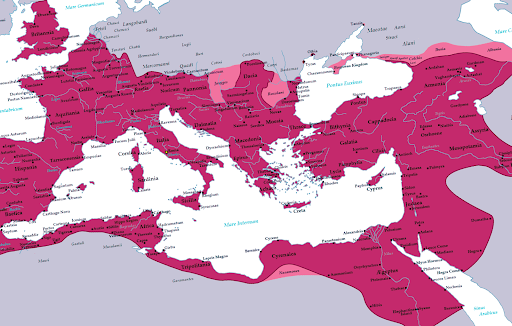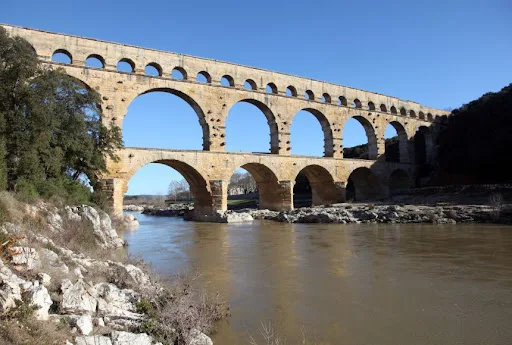👑 The Roman Empire, located along the Mediterranean Sea, was one of the largest and most enduring in world history. It grew out of a small agricultural community founded on the Italian Peninsula as early as the 10th century BC.
 |
Ancient Roman Empire Map. |
👑 Rome was a hub of technology, literature, culture and architecture. The Romans built strong arched bridges, and mastered the concept of "running water" using aqueducts that, among other other things, supplied public baths.
👑 The saying "All Road Lead to Rome" originated from the fact that the engineers of the Roman age created an unparalleled network of roads, spread over approximately 50,000 miles (80,000 km).
👑 Ancient Rome contributed greatly to the development of war, law, language, religion and art in the western world.
👑 Theater was very important in the lives of the Romans. It was another way of keeping people busy and happy, so they would not plot against the emperor.
👑 Julius Caesar:
🔱 Julius Caesar (100 BC - 44 BC) was a Roman statesman, general and notable author of a Latin Prose. He played a critical role in the events that led to the demise of the Roman Republic and the rise of the Roman Empire.
🔱 Caesar's Victories in the Gallic Wars, completed by 51 BC, extended Rome's territory to the English Channel and Rhine. Julius Caesar introduced the Julian calendar and Julius face was depicted on Roman coins.
" I Came, I Saw, I Conquered. "— Julius Caesar.












